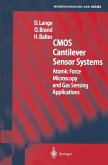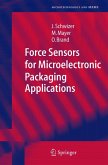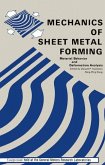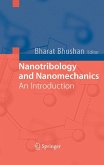Fabrication technologies related to those which are exploited for the fabrication of integrated circuits can be used to machine mechanical structures with minimum feature sizes in the range of micrometers. The mechanical machining of silicon based on IC-technologies is known as micromachining, and the systems made by micromachining are called MEMS (microelectromechanical systems). The present book describes how to use this technology to fabricate sensors of miniature size for mechanical quantities, such as pressure, force, flow and acceleration. The book includes a chapter with a comprehensive description of the relevant micromachining processes, and an introduction to MEMS, a field much broader than just microsensors. Most of these sensors rely on a deformation of the mechanical construction by an external load, and on a transduction mechanism to convert the deformation into a mechanical signal. The fundamental mechanics and electromechanics required for the understanding and the design of mechanical microsensors are described on a level accessible to engineers of all disciplines. Students in engineering sciences from the third year on should be able to benefit from this description. The most important mechanical sensors are described and discussed in detail with respect to fabrication issues, function and performance. Special emphasis is given to pressure sensors, force sensors, accelerometers, gyroscopes and flow sensors. Electronic interfacing, and a discussion of electronic circuits used for the sensors is also included. Finally the problem of packaging is addressed.
Dieser Download kann aus rechtlichen Gründen nur mit Rechnungsadresse in A, B, BG, CY, CZ, D, DK, EW, E, FIN, F, GR, HR, H, IRL, I, LT, L, LR, M, NL, PL, P, R, S, SLO, SK ausgeliefert werden.









